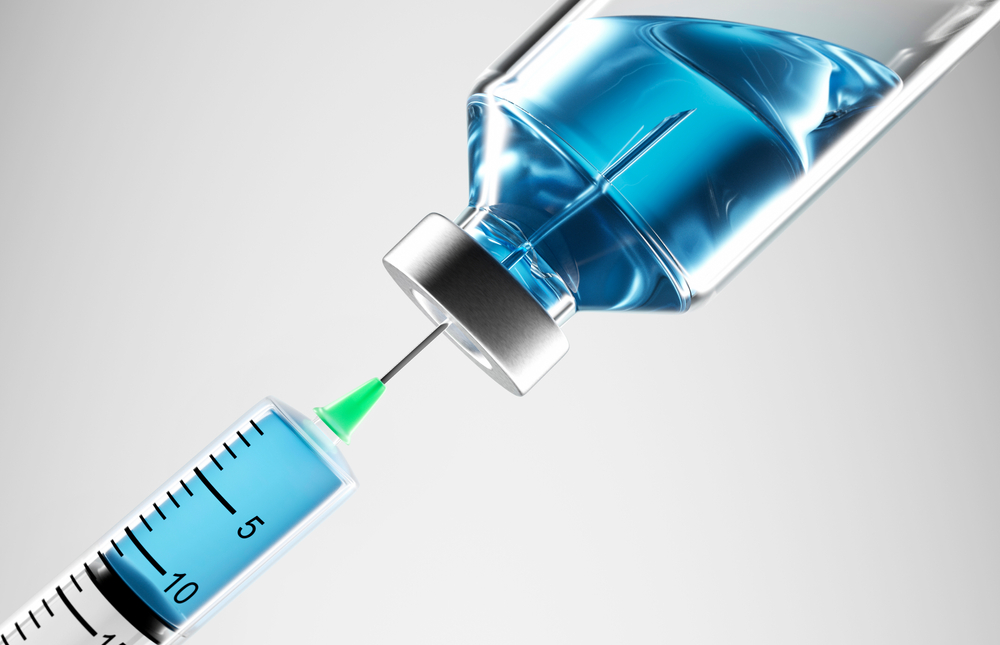England (Parliament Politic Magazine) – Following its endorsement by the Medicines and Healthcare products Regulatory Agency (MHRA), the NHS is set to pioneer the administration of a groundbreaking cancer-fighting injection, offering treatment completion within a mere seven minutes. This remarkable development will significantly reduce drug treatment durations for numerous NHS cancer patients, cutting down the time by up to 75%.
What is Atezolizumab?
Atezolizumab belongs to a class of targeted therapy drugs known as immune checkpoint inhibitors. This medication is utilized either on its own or in conjunction with other chemotherapy drugs to address specific forms of non-small cell lung cancer (NSCLC) in adults, as well as conditions like Hepatocellular Carcinoma, Melanoma, Urothelial Carcinoma, and Triple-Negative Breast Cancer.
This pioneering injection, using the immunotherapeutic drug Atezolizumab, also recognized as Tecentriq, has traditionally been administered intravenously through an IV drip. However, a transformative shift is underway as many patients will now receive the same immunotherapy via a swift injection.
The reach of this innovative treatment spans across various cancer types, encompassing lung, breast, liver, and bladder cancers. Each year, approximately 3,600 patients in England alone will reap the benefits of this advanced medical approach.
The Drugs Empowers The Immune System
Functioning as a monoclonal antibody, this drug empowers the body’s immune system to identify and eliminate malignant cells. Genentech, a subsidiary of Roche (ROG.S), is the manufacturer behind this medication.
Notably, a significant portion of the roughly 3,600 patients commencing atezolizumab treatment in the country each year are anticipated to transition to the more time-efficient injection method. The NHS has also clarified that individuals undergoing intravenous chemotherapy in combination with atezolizumab may continue with the transfusion approach.
The majority of these individuals are anticipated to receive the drug through a swift seven-minute injection rather than the traditional intravenous route, which typically spans 30 minutes to an hour. However, patients who are undergoing chemotherapy alongside atezolizumab might still receive the drug intravenously.
NHS England Revealed The Treatment Does Not Cost Any Extra Money
Functioning as a checkpoint inhibitor, this drug aids the immune system in detecting and eliminating cancer cells. Prof. Peter Johnson, National Director for Cancer at NHS England, emphasized that this groundbreaking step showcases how an innovation-oriented healthcare system is ensuring cutting-edge cancer treatments for patients.
He underlined, “The unprecedented introduction of this treatment signifies that numerous patients can curtail their hospital stays, thereby freeing up crucial time within NHS chemotherapy units.”
He continued, “Preserving the highest possible quality of life for cancer patients remains paramount, making the adoption of quicker subcutaneous injections a profoundly significant change.”
NHS England clarified that the accelerated treatment process incurs no extra cost, thanks to the pre-existing commercial agreement negotiated with the drug’s manufacturer, Roche.
Marius Scholtz, Medical Director for Roche, affirmed, “Administering Tecentriq subcutaneously offers a speedier treatment alternative, with an approximate duration of seven minutes compared to the current intravenous infusion method, which takes around 30 to 60 minutes.”
Atezolzumab Proves To Be Advantagous To Cancer Patients
Research indicates that a majority of cancer patients express a preference for subcutaneous treatment, which involves injection or infusion just beneath the skin. This preference arises from the reduced pain and discomfort, streamlined administration process, and shorter treatment duration as compared to intravenous infusion.
The IV variant of atezolizumab has already proven advantageous for thousands of cancer patients in England, significantly lowering the risk of cancer recurrence.
Clinical trials focusing on patients with early-stage non-small cell lung cancer have demonstrated that atezolizumab can mitigate the risk of cancer returning or mortality by 34% post-surgery and chemotherapy.
This groundbreaking treatment operates by obstructing a protein that inhibits the immune system from attacking cancer cells, thereby rendering cancer cells more susceptible to immune detection. Furthermore, it was revealed on Tuesday that the UK’s capability to certify medical devices has received reinforcement through the inclusion of three approved entities.
Read More: UK Health Authorities Advance Autumn Administration of Flu and COVID Vaccinations
MHRA Ro Evaluate Quality Of The Medical Device
This strategic addition is projected to nearly double the current assessment capacity, facilitating enhanced patient access to more effective medical products.
Designated by the MHRA, these approved entities—TÜV SÜD, Intertek, and TÜV Rheinland UK—will thoroughly evaluate the quality and design of each medical device, while also verifying individual units or batches.
Dr. Laura Squire, Chief Healthcare Quality and Access Officer at MHRA, commented, “By substantially increasing the assessment capacity for medical devices in the UK, we are empowering patients to obtain the safe and effective products necessary for safeguarding their well-being.”


